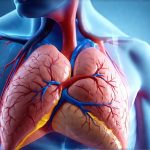Decreased appetite and nausea are two frequently intertwined symptoms that can significantly impact quality of life. Often experienced together, they signal an underlying disruption within the body, ranging from relatively minor causes like temporary digestive upset to more serious conditions requiring medical attention. Understanding the complex relationship between these sensations is crucial not only for identifying potential health concerns but also for managing discomfort and restoring a sense of wellbeing. Many individuals dismiss initial symptoms as fleeting, yet persistent or severe instances often warrant investigation to rule out underlying issues and ensure appropriate care.
The human body possesses incredibly sensitive mechanisms designed to protect itself. Nausea acts as an early warning system – a signal that something isn’t right. Similarly, a diminished desire to eat is a natural response when the digestive system is compromised or overwhelmed. These aren’t isolated events; they are often intimately connected, forming a feedback loop where nausea reduces appetite and a lack of sufficient nourishment can exacerbate feelings of sickness. Recognizing this connection allows for more informed self-assessment and proactive steps toward recovery or seeking professional guidance when necessary. This article will explore the multifaceted links between decreased appetite and nausea, delving into common causes, potential complications, and strategies for managing these symptoms effectively.
The Neurological Pathways Linking Nausea and Appetite
Nausea isn’t simply a stomach issue; it’s intricately linked to complex neurological pathways within the brain. The area postrema, located in the medulla oblongata, plays a central role as a “vomiting center.” This area lacks a blood-brain barrier, making it exceptionally sensitive to toxins and irritants circulating in the bloodstream. When stimulated – by chemicals, infections, or even psychological stress – the area postrema triggers signals that result in the sensation of nausea and potentially vomiting. Importantly, this same neurological network profoundly influences appetite regulation.
The hypothalamus, a brain region crucial for maintaining homeostasis, is responsible for controlling hunger and satiety. Nausea often inhibits hypothalamic signaling, effectively suppressing appetite. This suppression isn’t merely about disinterest in food; it’s an active physiological process where the brain prioritizes self-preservation over nutritional intake. When nausea is present, the brain sends signals to reduce gastric motility (the movement of food through the digestive system) and decrease saliva production – both contributing to a diminished desire for eating. This creates a cyclical effect: nausea reduces appetite, potentially leading to decreased nutrient absorption, which can then worsen feelings of weakness and exacerbate nausea.
Furthermore, neurotransmitters like serotonin play a significant role in both nausea and appetite control. Serotonin is involved in regulating mood, sleep, and digestion. Certain medications or conditions that increase serotonin levels can lead to nausea as a side effect. Conversely, disruptions in serotonin pathways can contribute to both loss of appetite and gastrointestinal distress. Understanding these interconnected neurological processes helps explain why simply “trying to force” food down when nauseous often backfires, potentially worsening the symptoms.
Common Causes Behind Combined Symptoms
Numerous factors can trigger both decreased appetite and nausea simultaneously. Identifying the root cause is essential for determining appropriate management strategies. One of the most common culprits is gastrointestinal illness, such as viral or bacterial infections (e.g., norovirus, food poisoning). These illnesses often lead to inflammation and irritation within the digestive tract, resulting in both nausea and a loss of appetite. Similarly, conditions like gastritis (inflammation of the stomach lining) or irritable bowel syndrome (IBS) can produce similar symptoms on an ongoing basis.
Beyond gastrointestinal issues, systemic illnesses – those affecting the entire body – frequently present with these combined symptoms. Conditions such as kidney disease, liver problems, and even certain cancers can disrupt normal physiological processes and lead to nausea and appetite loss. Medications are another significant cause. Chemotherapy drugs, pain relievers (especially opioids), and antibiotics are well-known for inducing nausea as a side effect, which in turn diminishes the desire to eat. Psychological factors also play a substantial role – anxiety, stress, and depression can all manifest physically as nausea and appetite loss. In these cases, the connection is often mediated through the brain’s influence on the digestive system (the “gut-brain axis”). Hormonal changes can also contribute to this complex interplay.
Finally, pregnancy, particularly during the first trimester, commonly causes “morning sickness,” characterized by nausea and decreased appetite. This is largely attributed to hormonal changes and typically resolves as pregnancy progresses. It’s important to remember that while many causes are relatively benign and self-limiting, persistent or severe symptoms warrant medical evaluation to rule out more serious underlying conditions.
Identifying When To Seek Medical Attention
While occasional mild nausea and loss of appetite are usually not cause for concern, certain signs should prompt a visit to a healthcare professional. – Persistent vomiting (inability to keep down liquids) – Severe abdominal pain – especially if accompanied by fever – Dehydration (signs include decreased urination, dizziness, and extreme thirst) – Blood in vomit or stool – Unintentional weight loss – particularly if significant or rapid – Symptoms lasting longer than a few days despite self-care measures
These symptoms could indicate a more serious underlying issue requiring diagnosis and treatment. A doctor can perform necessary tests to determine the cause of your symptoms and recommend an appropriate course of action, which may include medication, dietary changes, or further investigation. Do not attempt to self-diagnose or treat severe symptoms. Relying on accurate medical evaluation is crucial for ensuring proper care.
Dietary Strategies for Managing Mild Symptoms
For mild cases of decreased appetite and nausea, certain dietary adjustments can often provide relief. – Small, frequent meals: Instead of three large meals, opt for several smaller portions throughout the day to avoid overwhelming the digestive system. – Bland foods: Focus on easily digestible options like toast, rice, bananas, and applesauce (the BRAT diet). These are less likely to irritate the stomach. – Avoid strong odors and flavors: Strong smells or spicy foods can exacerbate nausea. – Stay hydrated: Sip on clear liquids throughout the day – water, ginger ale, or herbal teas. Avoid sugary drinks, which can sometimes worsen nausea. – Ginger: Studies suggest that ginger can help alleviate nausea. You can consume it in various forms – ginger tea, ginger chews, or even a small piece of fresh ginger.
It’s also crucial to identify and avoid foods that trigger your symptoms. Keeping a food diary can help pinpoint potential sensitivities or intolerances. Gradual reintroduction of normal dietary habits is key as you recover. Don’t rush into eating everything at once; slowly add back more complex foods as tolerated.
The Role of Psychological Support & Stress Management
As previously mentioned, psychological factors significantly influence both nausea and appetite. Chronic stress, anxiety, or depression can all contribute to these symptoms, creating a vicious cycle where emotional distress worsens physical discomfort. – Mindfulness techniques: Practices like meditation and deep breathing exercises can help reduce stress levels and calm the nervous system. – Cognitive behavioral therapy (CBT): This type of therapy helps identify and modify negative thought patterns that may be contributing to anxiety or depression. – Relaxation techniques: Activities such as yoga, tai chi, or spending time in nature can promote relaxation and reduce stress. – Social support: Connecting with friends and family can provide emotional comfort and a sense of belonging.
If you suspect that psychological factors are playing a role in your symptoms, seeking professional help from a therapist or counselor is highly recommended. Addressing underlying mental health concerns can often lead to significant improvements in both physical and emotional wellbeing. Remember that taking care of your mental health is just as important as taking care of your physical health, particularly when dealing with chronic or persistent symptoms. Gut inflammation can sometimes be linked to these feelings. Furthermore, issues like gallstones might contribute to overall discomfort. Finally, consider the impact of gut biofilm on digestive health.


















